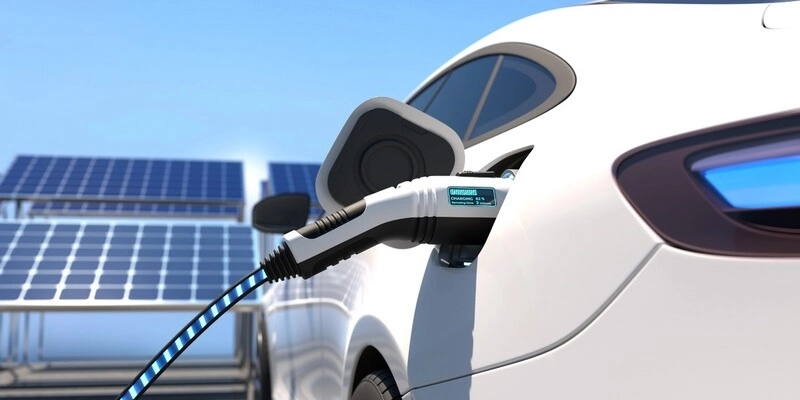After achieving a strong presence in the national territory, linc-e will now begin to offer its services, which include electric mobility and solar energy, in Portugal, where it will have offices in Lisbon and Porto.
In this framework, the company is starting a partnership with an energy consulting firm that stands out in the sector, positioning itself as the fifth largest marketer in the country.
When will it start operating? “Probably in the next few weeks,” anticipates Álvaro del Pozo González, founder of the company, to Mobility Portal España.
“We will have a strong commercial presence, as the marketing company has 50 active agents on the street,” he states.
Therefore, in a first phase, linc-e will be in charge of training distributors in relation to its products, both photovoltaic and chargers for electric vehicles.
The company offers a Power Purchase Agreement (PPA) that allows the execution of projects without the owner of the surface making any investment.
This model guarantees the customer a highly competitive and secure energy price in the long term.
At the end of the power purchase contract, the installation becomes the property of the owner or he may choose to acquire it at any time before the end of the PPA contract.
This format of photovoltaic projects includes the investment of the chargers at that site.
Thus, the client pays a rate for the energy generated by the installation, which also includes the implementation of a charging infrastructure.
In many cases, it also manages the operation of the “refueling” equipment, with the client being the main beneficiary of the income generated by recharging, despite the fact that the project has been carried out without the client having invested.

“It is a very interesting model that we plan to develop in Portugal and we believe that it will have considerable acceptance in that market,” emphasizes the company’s founder.
And not only that.
linc-e also plans to venture into the world of tenders, a sector that it had not explored until now.
To carry out this new project, it will collaborate with a specialized company, with which the entire process will begin this June.
Although this idea has been present since the beginning of the company, it was decided to wait until we had a consolidated team and a solid position in the market.
“And that moment has arrived now, after almost three years,” says Álvaro del Pozo González.
All these steps are framed in an environmental mentality that defines the company’s identity.
How?
The brand is called linc-e, in reference to this species in danger of extinction in the national territory, in order to promote awareness about the importance of taking care of the planet.
To comply with this premise, the company strives to always source from local manufacturers or suppliers to the extent possible.
In the case of Spain, it seeks to collaborate with national manufacturers located in the country.
While, for example, for ultra-fast chargers, it extends a little further to Europe.
“We are working with European manufacturers to contribute to both the environment and the local economy,” he says.
Its client portfolio covers various sectors, from residential to industrial, and includes installations on highways, shopping centers and other environments.
As well as collaborating with investment funds focused on identifying strategic locations for the installation of fast charging infrastructure.
The path from photovoltaics to electric mobility
Álvaro del Pozo González began to venture into the solar energy sector at the end of the 90s, when it “was not yet widely accepted.”
“When we started, we were the renewable energy crazies,” he says, emphasizing that they did not have support from public institutions.
In fact, they carried out installations without charging the customer until they verified that they were working correctly.
In this regard, he emphasizes that the current dynamics differ completely from the previous ones.
“Electric mobility has been born with the impulse of everyone, both institutions and environmentalists, among others,” he stresses.
And he states: “As a general rule, most people today support this change, so the barriers are minimal and what prevails are the incentives.”








